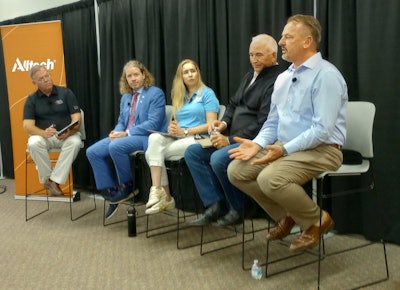
Mark Hulsebus, Mark Lyons, Maria Zieba, Gordon Spronk and Frank Mitloehner take part in a panel discussion at World Pork Expo.
Roy Graber
If those in agriculture want to stop the spread of misinformation, they must learn to talk to people outside of the agrifood industry as well as they do one another.
